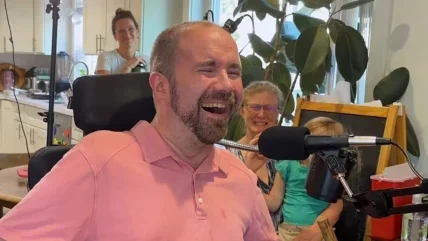
UC Davis Health said its brain-computer interface (BCI) has allowed a man with severe speech impairment caused by amyotrophic lateral sclerosis (ALS) to speak again.
The California-based health centre has developed a BCI that can convert brain signals into speech with a claimed accuracy of up to 97%.
During the BrainGate clinical trial, the sensors were implanted in the brain of the ALS patient. He was able to communicate his intended speech just minutes after activating the system.
The new experimental technology aims to restore communication for individuals who are unable to speak due to paralysis or neurological conditions such as ALS.
It works by interpreting brain signals associated with the user’s attempts to speak and then converting these signals into text, which the computer converts into speech.
At the time of enrolment, the patient experienced tetraparesis, which left him with significant weakness in his arms and legs, and his speech was severely impaired.
In July 2023, the BCI device was implanted by positioning four microelectrode arrays into the left precentral gyrus, a brain region crucial for speech coordination. These arrays are designed to capture brain activity through 256 cortical electrodes.
Harrell used the system in both prompted and spontaneous conversational settings. In each instance, speech decoding occurred in real time, with continuous updates ensuring the system remained accurate.
The decoded words were displayed on a screen and were read aloud in a voice that resembled Harrell’s voice before he developed ALS. The voice was generated using software trained with audio samples from his pre-ALS speech.
During the initial speech data training session, the system achieved an impressive 99.6% word accuracy with a 50-word vocabulary in just half an hour.
In the second session, the vocabulary was expanded to 125,000 words. With just an additional 1.4 hours of training data, the BCI achieved a 90.2% word accuracy with this much larger vocabulary.
Following further data collection, the system has consistently maintained an accuracy rate of 97.5%, UC Davis Health said.
UC Davis neurosurgeon David Brandman said: “Our BCI technology helped a man with paralysis to communicate with friends, families and caregivers.
“Our paper demonstrates the most accurate speech neuroprosthesis (device) ever reported.”
Companies such as Blackrock Neurotech, Medtronic, Synchron, and Elon Musk’s Neuralink are working on commercialising BCIs.






